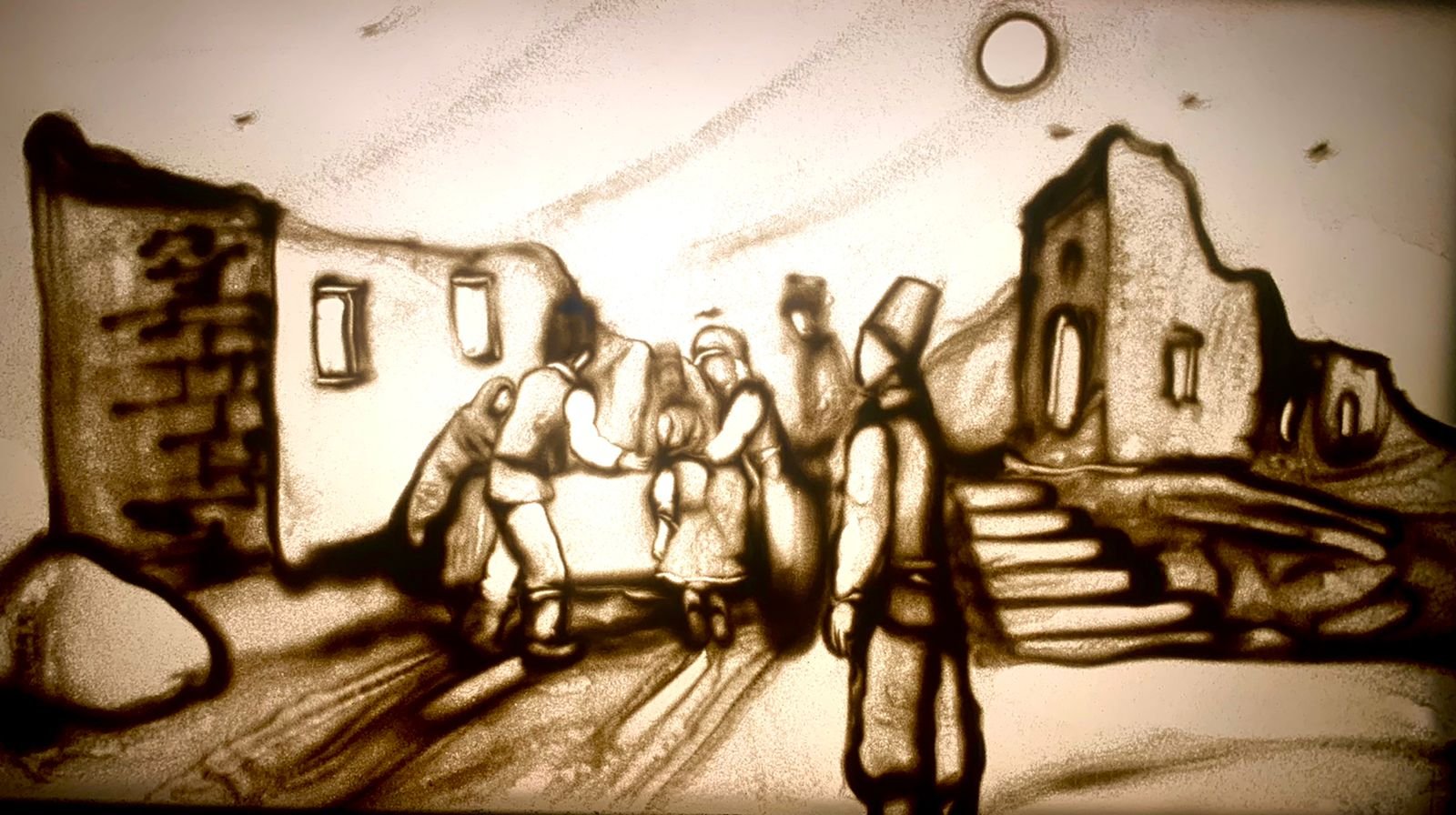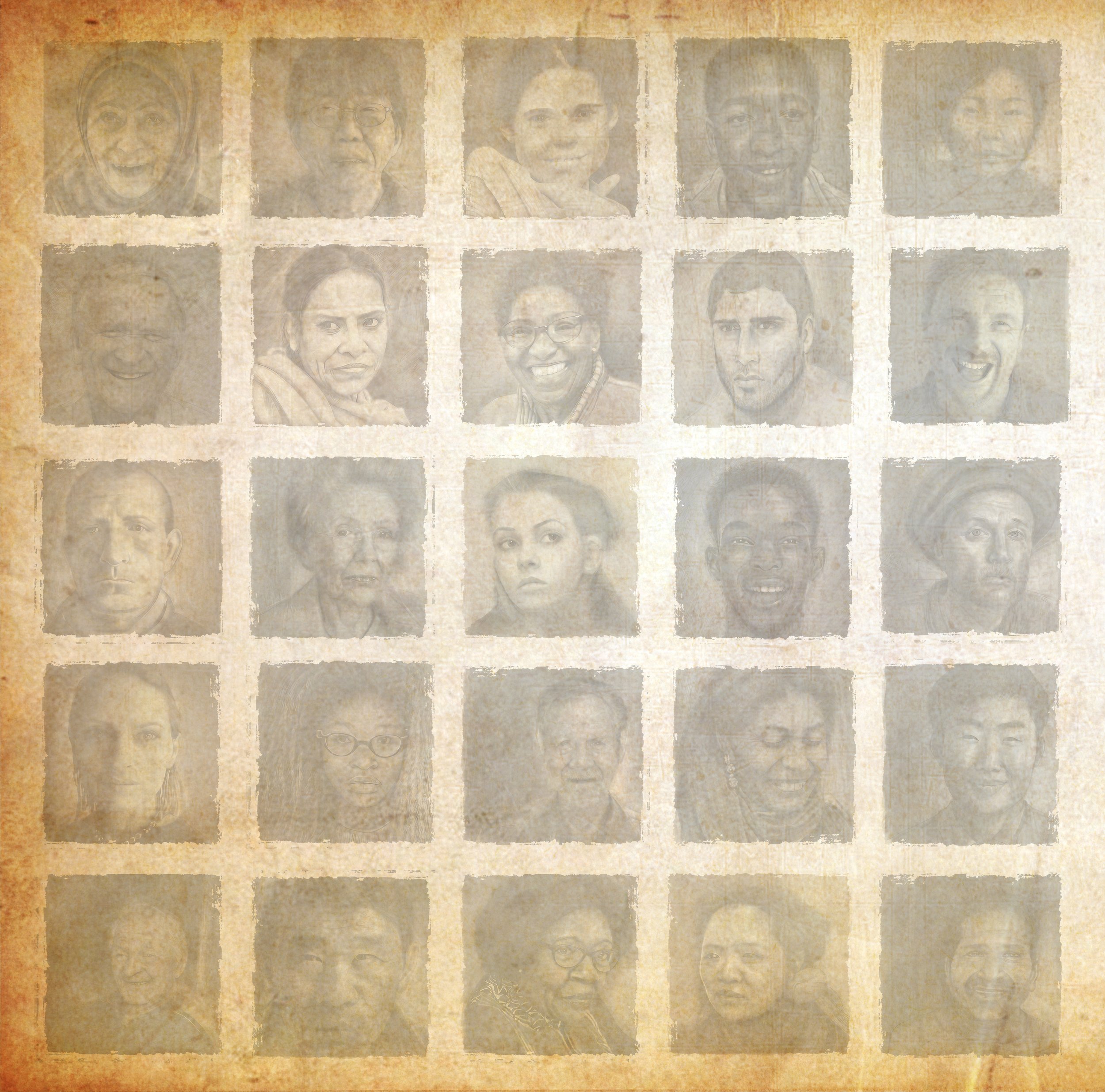
About Arts for Social Cohesion




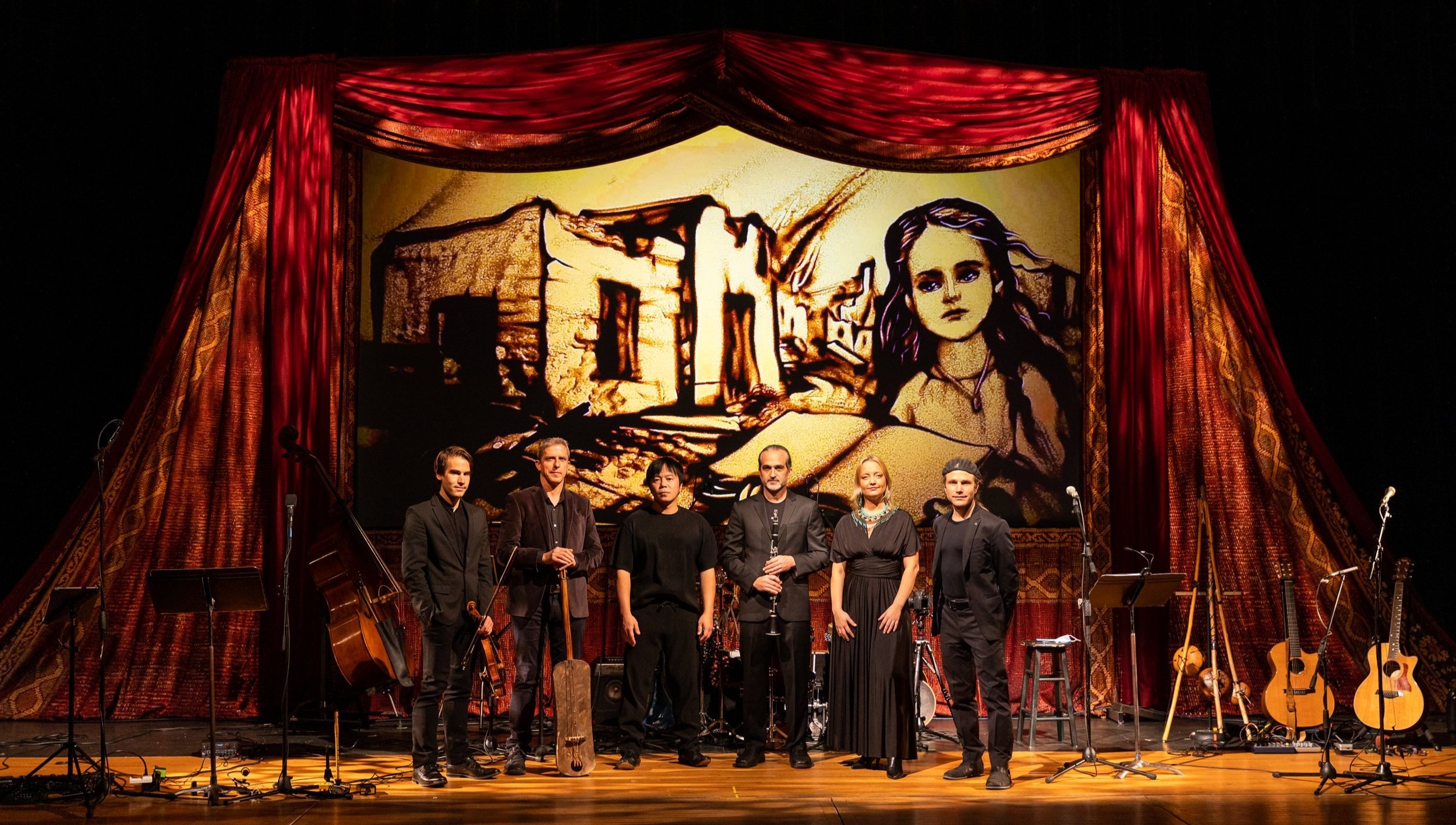
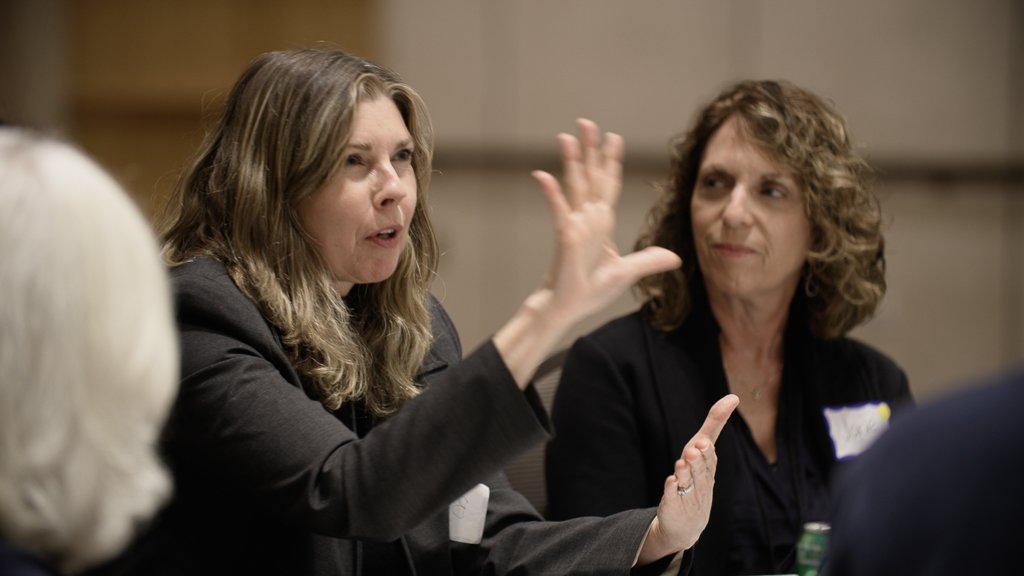


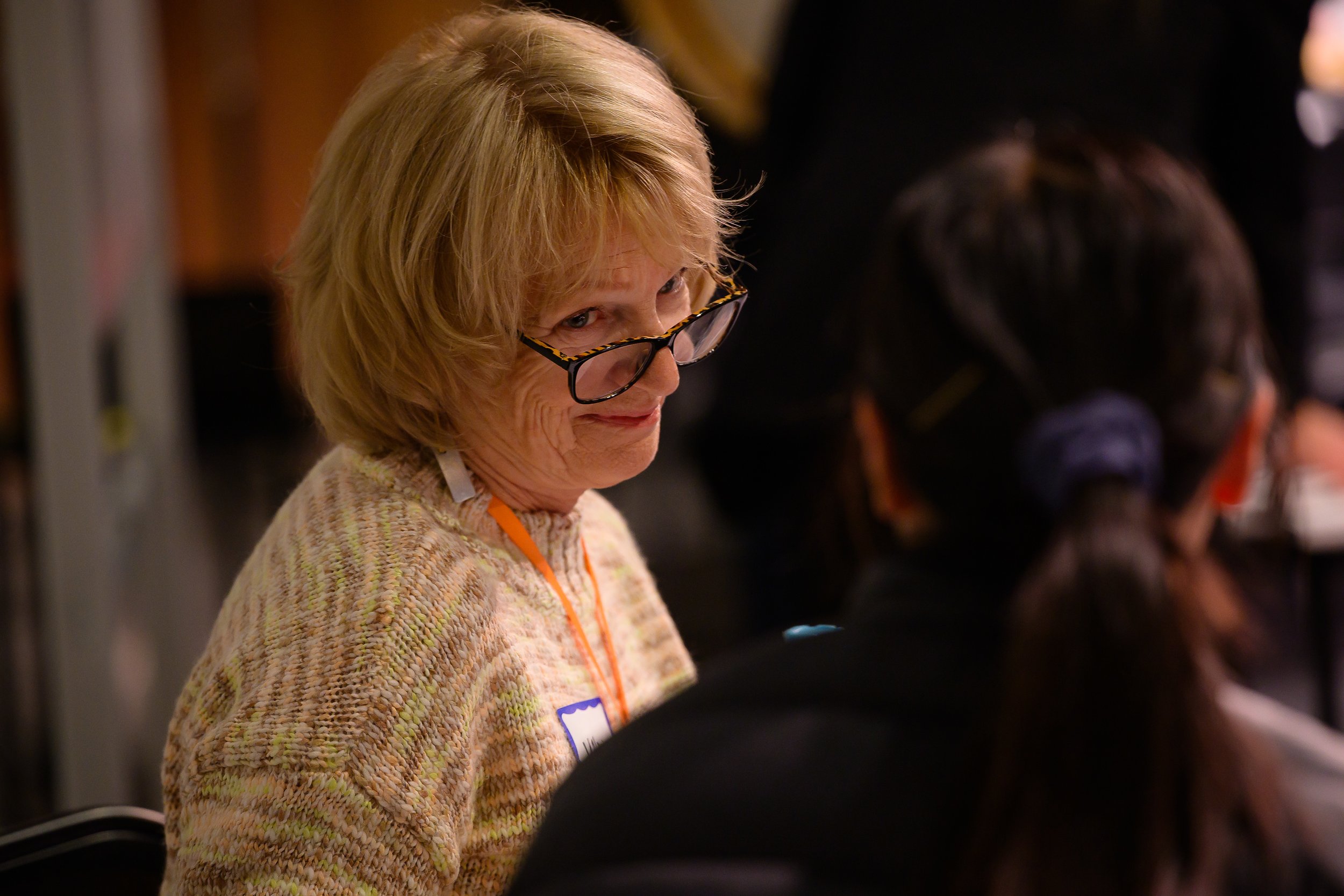
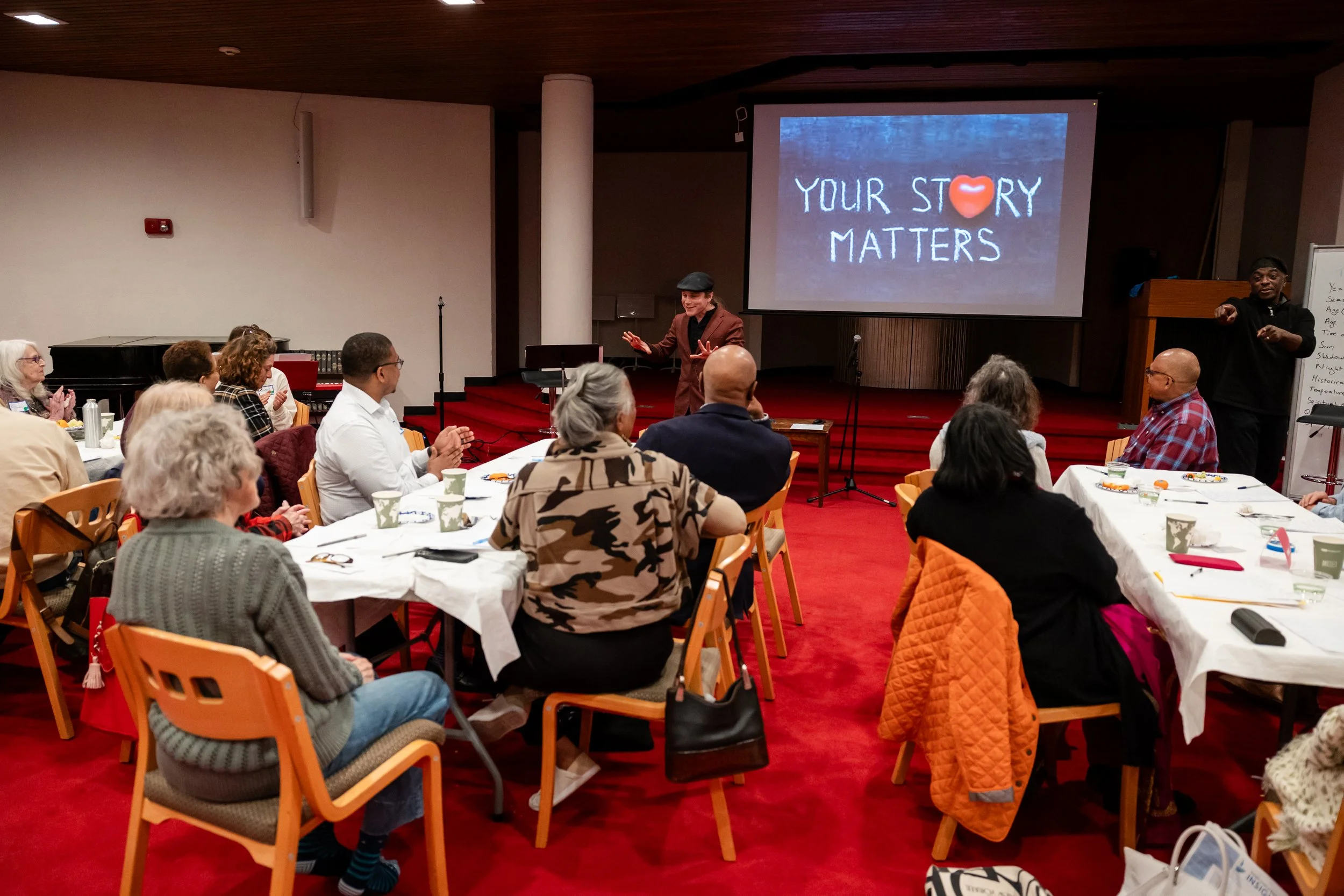
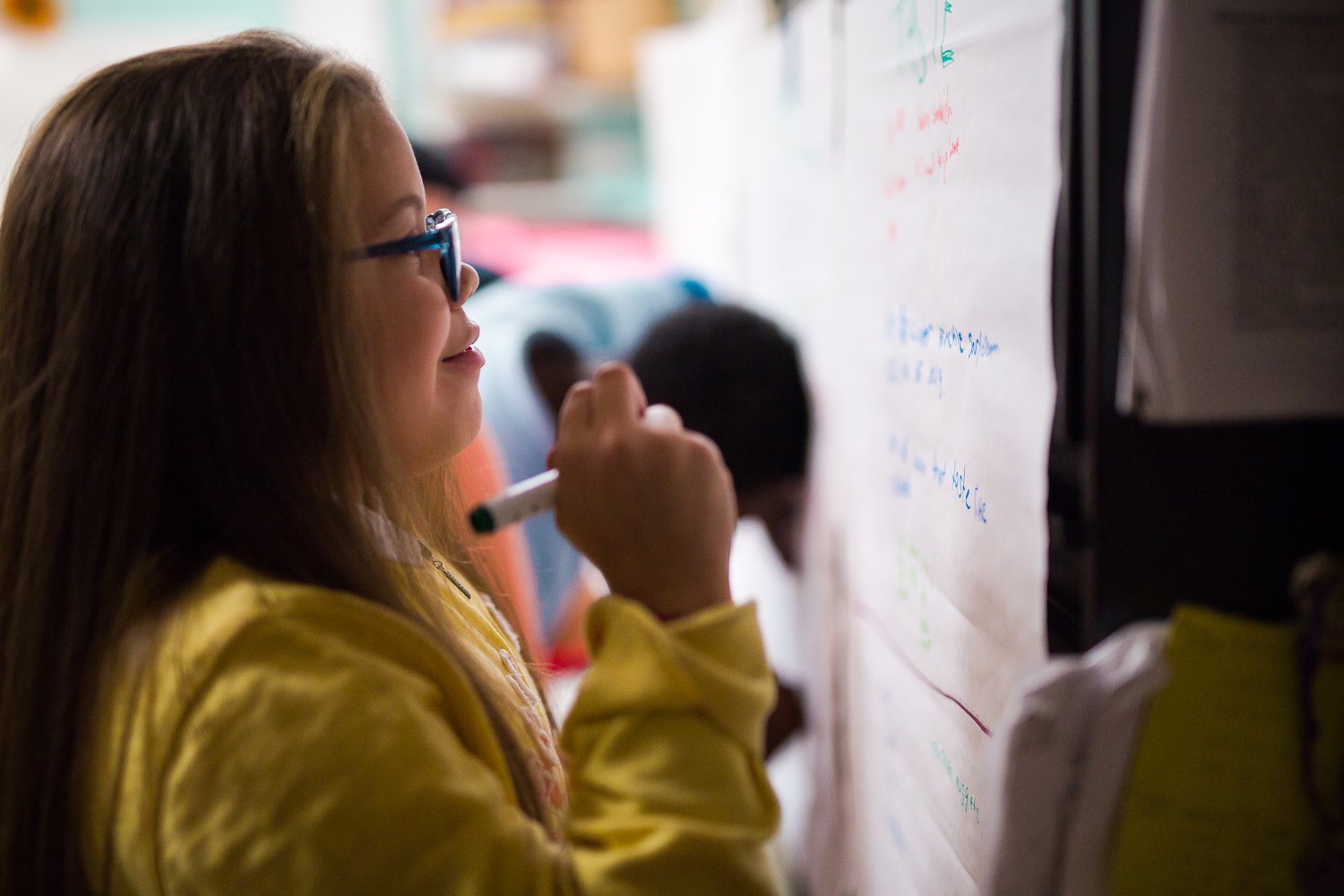
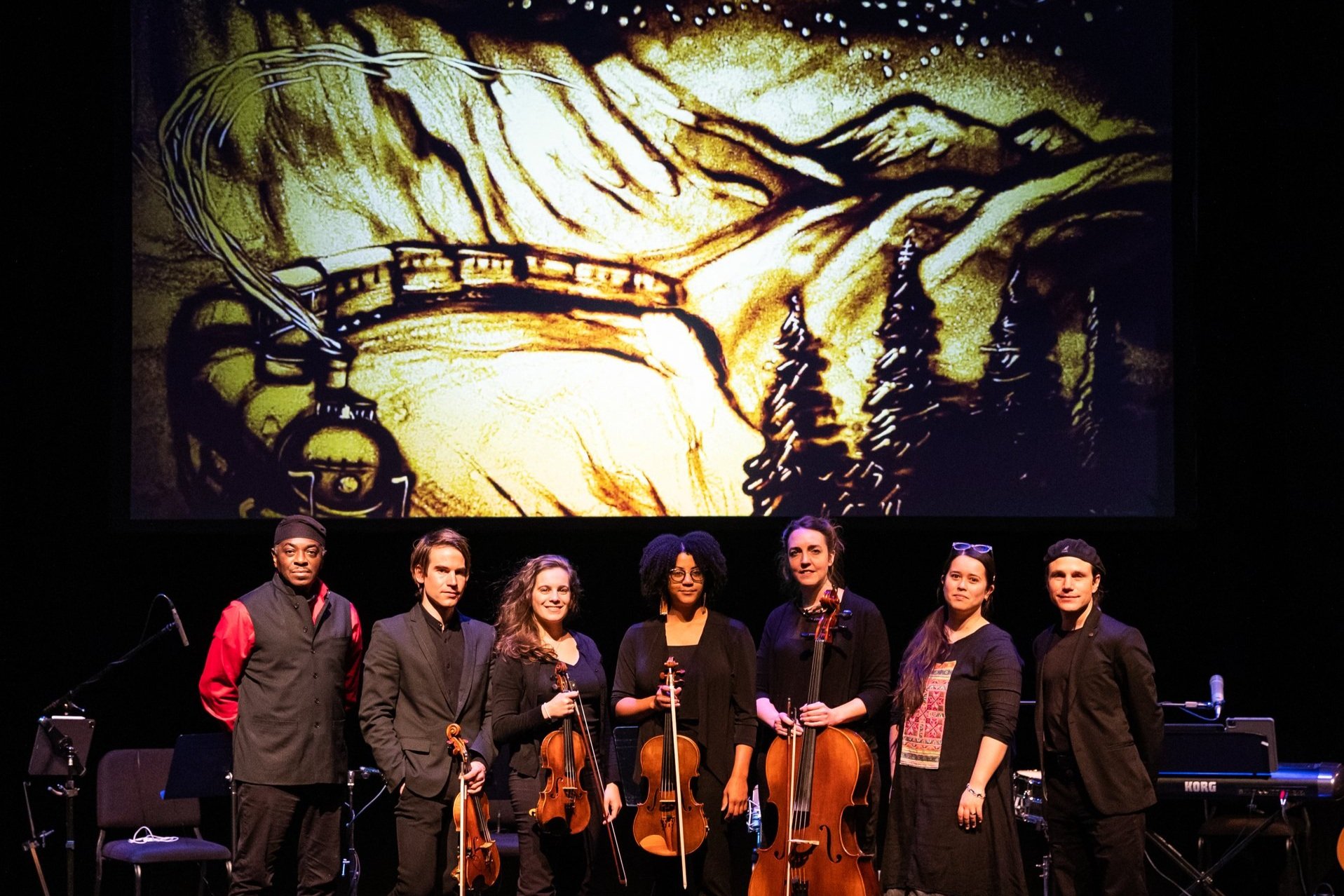

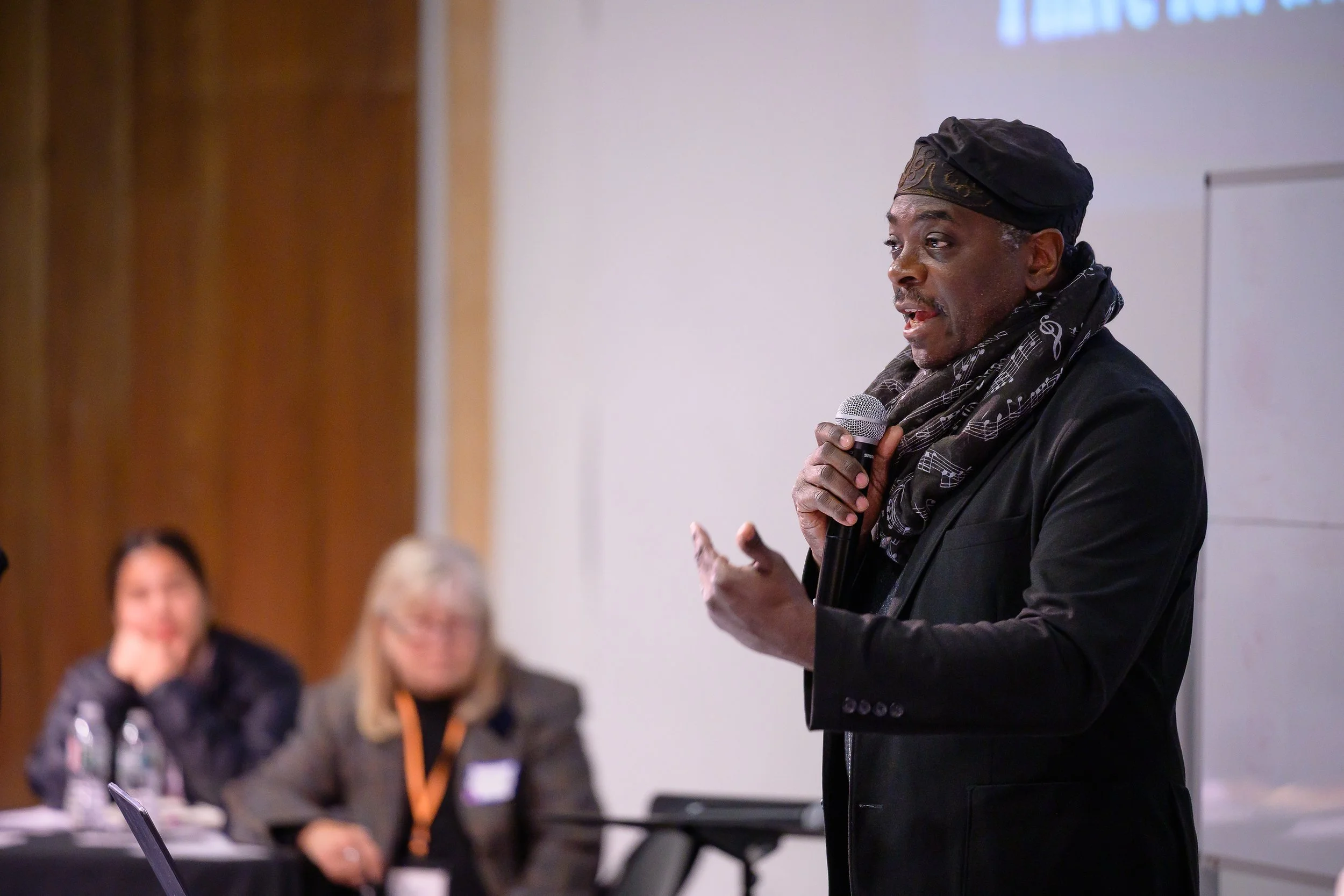
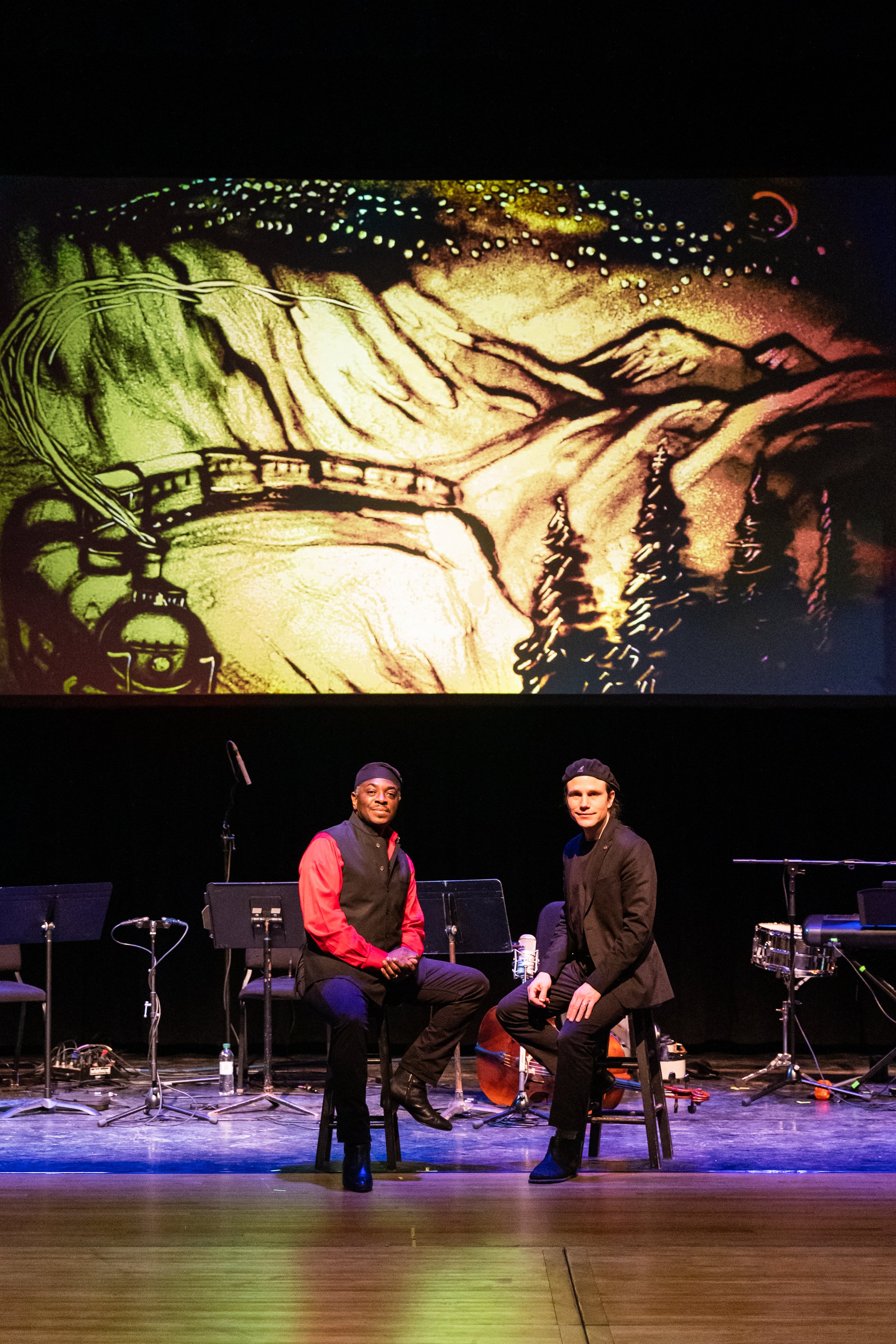
Who We Are
Arts for Social Cohesion increases group connection and collaboration across differences by strengthening relationships of dignity, psychological safety and mutual regard. Such relationships build resilience and capacity for groups to thrive through inevitable challenges and changes.
To do this, ASC combines powerful artistic experience with pedagogy to orchestrate conditions making it psychologically safe and easy for people to: be curious, listen generously, get real and connect emotionally in ways that feel alive.
Founded in 2024, ASC builds on some three decades of high-profile touring and residency design as Guy Mendilow Ensemble and Regie Gibson, independently. ASC is already making headwinds. For example, the Center for Combating Antisemitism recently identified ASC as one of three "high potential and high impact…strategic community-based projects well-positioned for moving the needle" toward deeper cross-community understanding. ASC was the sole arts-based initiative. (1)
Leadership
ASC is led by Regie Gibson, inaugural poet laureate of the Commonwealth of Massachusetts, and composer/educator Guy Mendilow.
ASC’s strength lies in synthesizing:
Rigorous artistry. For example, Regie is MA’s inaugural poet laureate. Guy has been arranging for/directing ensembles on international stages since age 13 (e.g., National Concert Hall, Taipei, Taiwan). Both honed their craft touring and directing on leading performing arts stages since 1998, from Celebrity Series of Boston and “Promised Land” at Oprah Winfrey’s home to the Krannert Performing Arts Center;
Pedagogical expertise (e.g., Professorships at Berklee College of Music; Advanced pedagogy degrees; Residency design from the Navajo Reservation and rural Midwest to metropolitan centers since 1996);
Best practices in social psychology, emphasizing seemingly small, precise moves that, when carefully tailored, targeted and timed, make long-lasting, even snowballing impacts in people’s beliefs and inferences about themselves, each other and social situations.
ASC’s Compass
ASC is guided by three generations of family lifework efforts to create spaces where people who were considered “less than” would be respected as equals worthy of full regard (e.g., smuggling Jews out of fascist Hungary in WWII; founding Yad LaKashish / Lifeline for the Old striving for European, Mediterranean or North African elders’ dignity, sense of purpose and contribution since 1962). ASC likewise draws on its directors’ lived experiences and background in strengthening dimensions of belonging, verified by decades of replicated social psychology studies.

ASC increases cohesion through:
-
Processes & residencies to strengthen connection & collaboration across differences
ASC designs and facilitates cohesion processes — from workshops and crowdsourced poems to lively dinners and Listening Labs.
Each process is designed to create a threshold for meaningful connection across differences, however small or large. The process then accelerates people’s crossing over that threshold in ways that are psychologically safe, easy, and in which people feel even more alive.
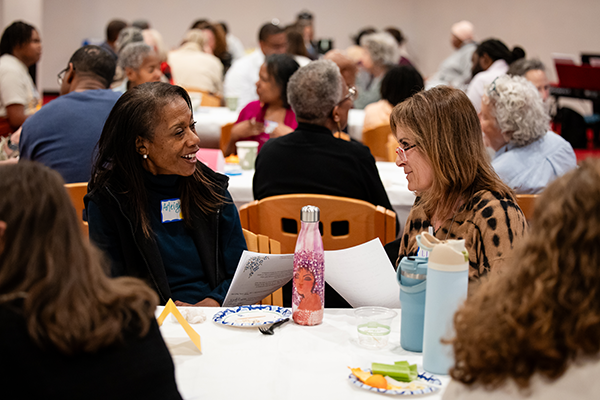
-
Original productions to widen the "WE"
ASC produces live, original multidisciplinary performances. Through powerful spoken word, score and song, ASC’s performances explore real-world choices people make in times of personal or societal change, and especially unexpected grace amidst upheaval.

-
Field building: Evidence & training to expand arts-based cohesion
Through rigorous evaluation and field testing, ASC builds evidence showing how arts-based approaches support and accelerate innovative efforts toward social cohesion, group resilience, and ways out of intractable conflict. ASC is developing a pedagogy to train more artists in principles and strategies to craft conditions for people to connect and collaborate across lines of difference.

-
Arts impact consultancy: Designing & funding programs to widen belonging
ASC helps cultural and arts organizations clarify and articulate how their projects build connection across difference — combining strategic design, artful questions, and outcomes-focused narratives to increase funding support
Not 9-1-1: Expanding, Cultivating, Reimagining
ASC does not provide emergency intervention (e.g., when an issue becomes too hot). That is the work of conflict mediators. Instead, ASC helps build the muscle that groups flex to constructively engage together.
We work in three main contexts:
Expanding
Helping members of already strong, collaborative groups see more of one another. Further deepening bonds strengthens trust, psychological safety and dignity that, in turn, increase a sense of wellbeing and collaboration.
Cultivating
Helping communities strengthen relationships proactively, preventing inevitable tensions from erupting into crisis. The stronger this relational foundation is, the greater the group’s the greater the group’s capacities to collaborate through friction, channeling disagreement into productive adaptation together.
Reimagining
Helping those so exhausted from the stuckness of us vs. them that they become willing to try something bold: pause, step back from “the issue” and complicate the narrative (2) — beyond the monster masks pinned on each other. What have “they” been through that brings them to see, believe and choose as they do? What matters to them in their lives? What are their hopes and fears? While necessitating neither agreement nor endorsement, understanding more of each other’s complex humanity and underlying values opens possibilities for perceptions about disconnect to loosen, making paths forward together at least conceivable. Subsequent mediation efforts building on this relational foundation are often more effective (3).
Rooted in Belonging
Researchers link belonging — and its absence — with some of the most complex challenges of our time, from loneliness and isolation to various forms of social and political fragmentation.
We understand belonging mainly as relationships in which people feel:
Valued as people and for their contributions;
Agency (rather than being acted-upon); and
Safety to express perspectives and experiences without fear of punitive repercussions.
As many as two-thirds of Americans report a lack of belonging in at least one aspect of their life. 64% in the workplace, 68% in their country, and 74% in their local community (4).
ASC’s hypothesis is that arts-based approaches can help strengthen relationships of belonging.
How Does ASC Understand Social Cohesion?
Social cohesion is a framework for thriving for groups of people, however small or large.
We understand social cohesion as the ongoing processes of:
Developing group members’ sense of being valued and treated with full regard, well-being, and voluntary social participation, while simultaneously
Ensuring visibility of different perspectives and experiences within the group, however granular, and simultaneously and
Safeguarding group members’ equal rights and opportunities (5).
Like a fractal, Social Cohesion is a pattern recurring on many scales, from interpersonal levels (a relationship between two friends, a family) to community levels (an organization, a neighborhood, a town) to societal levels (state, region, country, etc). At each level, the principles are the same but the strategies are likely to differ.
Citations
1. Quotes from Center for Combating Antisemitism; Melissa Garlick, Associate Vice President, Center for Combating Antisemitism
2. See Ripley, A. (2018, June 27). Complicating the narratives. Medium. https://thewholestory.solutionsjournalism.org/complicating-the-narratives-b91ea06ddf63 and also
Coleman, P. T. (2021). Complicate — embrace contradictory complexity. In The Way Out: How to Overcome toxic Polarization. Columbia University Press. https://doi.org/10.7312/cole197403. See for example Bruneau, E. G., & Saxe, R. (2012). The power of being heard: The benefits of ‘perspective-giving’ in the context of intergroup conflict. Journal of Experimental Social Psychology, 48(4), 855–866. https://doi.org/10.1016/j.jesp.2012.02.017 and also
Boca S, Garro M, Giammusso I, Abbate CS. The effect of perspective taking on the mediation process. Psychol Res Behav Manag. 2018 Sep 27;11:411-416. doi: 10.2147/PRBM.S168956. PMID: 30310336; PMCID: PMC6166753,
https://pmc.ncbi.nlm.nih.gov/articles/PMC6166753/pdf/prbm-11-411.pdf
and also White, S., Schroeder, J., & Risen, J. L. (2021). When “enemies” become close: Relationship formation among Palestinians and Jewish Israelis at a youth camp. Journal of Personality and Social Psychology, 121(1), 76–94. https://doi.org/10.1037/pspi0000331
and also Merrilees, C. E., Taber-Thomas, B. C., & Klotz, M. (2024). Promoting radical empathy: Changes in empathy and perspective taking at a youth summer camp that centers restorative practices. Conflict Resolution Quarterly, 42(2), 279–288. https://doi.org/10.1002/crq.214454. Argo, N., & Sheikh, H. (2023). The Belonging Barometer: The State of Belonging in America. In American Immigration Council. American Immigration Council. https://www.americanimmigrationcouncil.org/research/the-belonging-barometer.
5. This conceptualization bridges various prevailing understandings of Social Cohesion, ranging from the Council of Europe and Canadian Government to the Organization for Economic Co-operation and Development (OECD). It is adapted from the work of Xavier Fonseca, Stephan Lukosch and Frances Brazier. See Fonseca, X., Lukosch, S., & Brazier, F. (2018). Social cohesion revisited: a new definition and how to characterize it. Innovation: The European Journal of Social Science Research, 32(2), 231–253. https://doi.org/10.1080/13511610.2018.1497480

